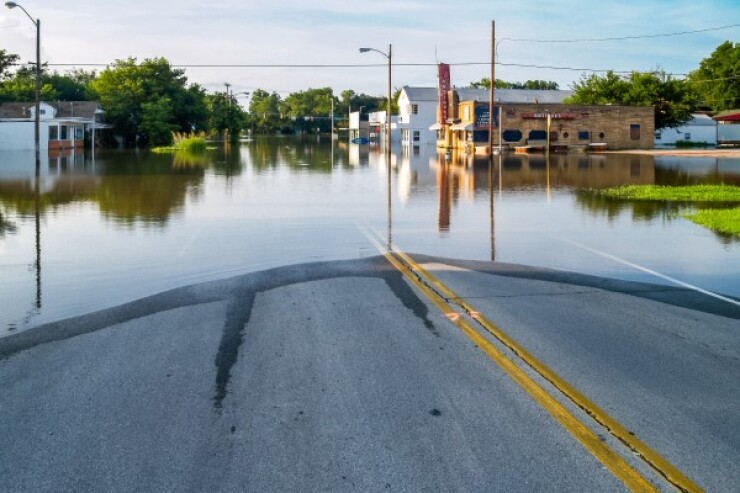Almost all, 99%, of commercial property stakeholders affirm that complying with current building standards is essential to protecting properties against climate risks, and more than half, 53%, are willing to spend $20,000 or more to increase resilience, according to the
"Nationwide has and will continue to raise awareness and advocate for the adoption of modernized building codes and resilient infrastructure. As a founding member of the Insurance Institute for Business and Home Safety (IBHS), we believe strong, enforceable building codes are the simplest, most effective way to better protect our communities, save lives, reduce property damage and lessen the burden for post-catastrophe aid," writes Mark Berven, president and COO of Nationwide's property and casualty business, in an email interview with Digital Insurance.
Of the property owners, new construction builders and business owners surveyed, nearly two-thirds, 65%, conveyed concerns about outdated building standards, and 84% agree that improved building codes are necessary to protect their properties.
The survey reports that 36% of property stakeholders, with 59% in hurricane-risk states, have experienced a weather event and suffered from related damage within the past five years. Of these respondents, almost half, 49%, said that their recovery took between four to six months and cost them between $20,000 and $50,000.
"Modernized standards, such as IBHS's
Employing technology and innovative solutions can also play an important role in building property climate resilience.
Research from Economist Impact's "
The index notes that poor internet quality can lead to issues with accessing digital services, which decreases the overall resilience score in critical infrastructure. Increased risk associated with digitalization is also a concern, though the report explains that most cities in the Economist Impact's index have built safeguards against such risk.
"As the industry leans into its central purpose of protection, it also requires that we shift our mindset to predicting and preventing losses before they happen. Technology plays an important role in enabling that shift. Nationwide partners closely with the IBHS…" explains Berven. "We're also investing in companies like Mitiga Solutions that combine scientific models with technology to give the insurance industry a better understanding of when and where bad weather will strike so we can be better prepared to withstand it. Additionally, our partnerships with smart technology companies like






